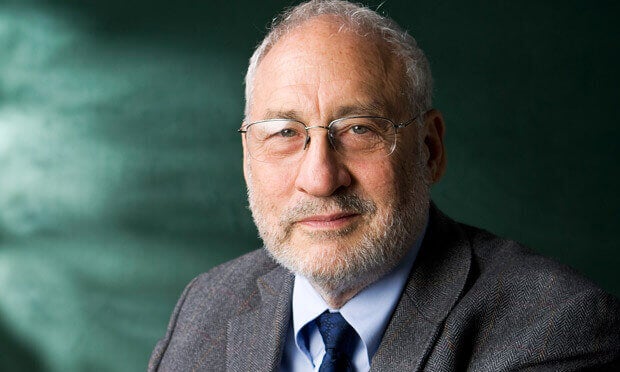Joseph Stiglitz is an economist born in Indiana, USA. In 1943; in 2001, he won the Nobel Prize in Economics for his extensive work on globalization; Stiglitz is a fierce critic of the same; her thesis clearly highlights the major changes and gaps she has caused in quality of life.
In 2008 Joseph Stiglitz was the most cited economist on the planet, which gives us an idea of the dimension achieved by his thesis and its relevance as a thinker, in fact, we are talking about one of the most influential intellectuals of the 21st century. .
- One of the most interesting aspects of Joseph Stiglitz’s theory is that it incorporates a fundamental fact: the globalizing model has generated more inequality and more discomfort.
- Quality of life.
- On average and taking into account the whole planet.
- Has diminished.
- But many do.
- That is why Stiglitz has also focused on certain elements of psychology that facilitate support for the current model.
- This last aspect we will refer to later.
“The model of fierce individualism combined with market fundamentalism has changed not only the way people perceive themselves and their preferences, but also their relationship with others. In a world of fierce individualism, there is little need for community and not trust. it’s an obstacle, it’s the problem, not the solution. ?Joseph Stiglitz?
Behavioral economics or behavioral economics is a new branch of psychology that applies to economic problems, this is due to the idea that while human behavior is not rational, it can be predictable in many cases, it is the basis that creates mechanisms across the economy. , to condition it.
Observations of the behavioral economy state that in our minds there are constant addictions and recurring perception errors, one of which is the framework, that is, the environment. Human beings tend to interpret realities according to the environment in which they find themselves or consider themselves.
An example of this is an old experiment. The victim of a crime is asked to identify his assailant in a police station and, most of the time, they end up identifying you, even if none of the people in sight are really suspicious.
For Joseph Stiglitz, much of the current political debate ends up being defined by the framework, the areas of power attract attention to focus on certain areas, hence everything else is interpreted. The fight against terrorism is an example. It is certain centers of power that define what terrorism is and who practice it. Often, the public cannot see that there are other actors who have similar behaviors and could also be described as “terrorists. “
Another aspect that Joseph Stiglitz refers to is the fragility of highly influenced and changing convictions. Stiglitz refers to several experiences in which this is palpable; for example, it indicates that people change their answers based on how the question is asked; people tend to choose the answer that best meets their standards, not the fairest or the fairest. corresponds to their supposed beliefs.
Another significant dependence indicates that people treat information differently if it is consistent with their previous beliefs; if so, it is considered relevant; on the other hand, when do you contradict or dispute these certainties?We usually ignore them. This distortion is known as a “confirmation dependency”.
From the first arises what Joseph Stiglitz calls “fictions about balance”, a belief that there is no objective inequality. In that sense, a survey found that up to 42% of Americans do not believe that global inequality has increased.
Joseph Stiglitz reminds us that the main task of marketing and advertising is to condition perceptions, to shape the way every human being sees the world and the reality around him, in some cases this conditioning is individual, but in many others it becomes a collective. Stiglitz points out that this way of perceiving the world, in turn, makes it a reality one way and not another.
People’s perceptions change the market, the economy changes, for example, there is a belief that the state is an obstacle to business and it is possible that someone who believes it will end up leading the state, this figure will act accordingly and determine the direction of everything, whether this principle is true or not.
Joseph Stiglitz’s theory goes far beyond what we have mentioned, but the important thing here is to clarify that he is a thinker worth living, the economy passes and involves us all, whether we like politics or not, too. The better we know their logic, the more autonomous we will be before them.

